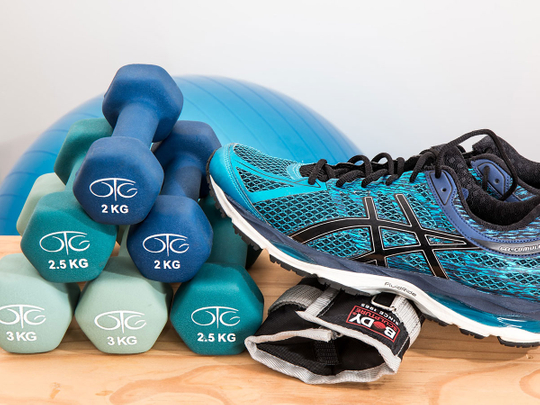
Feel too tired to work out? No motivation to eat your greens? You're not alone. Low motivation and fatigue are the primary factors keeping people from adopting a healthy lifestyle, a British survey suggests.
The poll of 2,086 adults was conducted online by YouGov on behalf of the World Cancer Research Fund and published Wednesday. It asked people what prevented them from making healthy changes to diet and being more physically active.
For 38 percent of people, the answer was absence of motivation, while 35 percent reported feeling "too tired." Many more women - 40 percent - reported exhaustion as a reason, compared with 29 percent of men. The divide was stark among age groups as well. Almost 50 percent of the younger people (25- to 34-year-olds) said exhaustion was a factor, while 23 percent of 55-year-olds and above cited the reason. (Respondents could select more than one option.)
Lack of time, high gym fees and food prices were other reasons that deterred people from being or eating healthier, the survey said.
"People have busy schedules, and we know that for many, the last thing they might feel like doing when they are tired or lacking in motivation, is to start cooking from scratch or going to the gym," Matt Lambert, health information and promotion manager of the cancer fund, said in an email. However, he added, taking small achievable steps can help without the pressure of overhauling your life.
Movement can boost energy levels through physiological changes, such as increasing oxygen circulation and producing more mitochondria. "Mitochondria are known as the powerhouses of cells, because they create fuel out of glucose from the food you eat and oxygen from the air you breathe. Having more of them increases your body's energy supply," researchers at Harvard Health have noted.
A regular exercise regimen can also improve or promote sleep, researchers say.
"We have solid evidence that exercise does, in fact, help you fall asleep more quickly and improves sleep quality," Charlene Gamaldo, a neurology professor at the Johns Hopkins Center for Sleep at Howard County General Hospital has written.
And a bad diet can get in the way of good sleep, The Washington Post has reported. (Fruits, vegetables and legumes are especially good for promoting a healthy gut microbiome, which can enhance sleep. A healthy gut may also have an impact on motivation, some studies have shown.)
While the benefits of a healthful diet and regular exercise might be indisputable, for many the struggle remains real. A third of U.S. adults don't get enough sleep. The pandemic has disrupted routines and heightened stress.
The internet is full of hacks and tips on getting good sleep and finding motivation for exercise, so why does it feel so daunting?
One expert has theorized that it's not simply a sign of weakness. In a 2015 paper Daniel Lieberman, a Harvard professor of human evolutionary biology, wrote that it is "natural and normal" to be physically lazy.
Our ancestors, Lieberman wrote, sought to conserve energy given the struggle they had to undergo to survive, which explains our predisposition toward rest. Other experts have offered different reasons for low motivation, including negative experiences with physical activity in childhood.
In either case, you might have an excuse if you skipped the gym.










